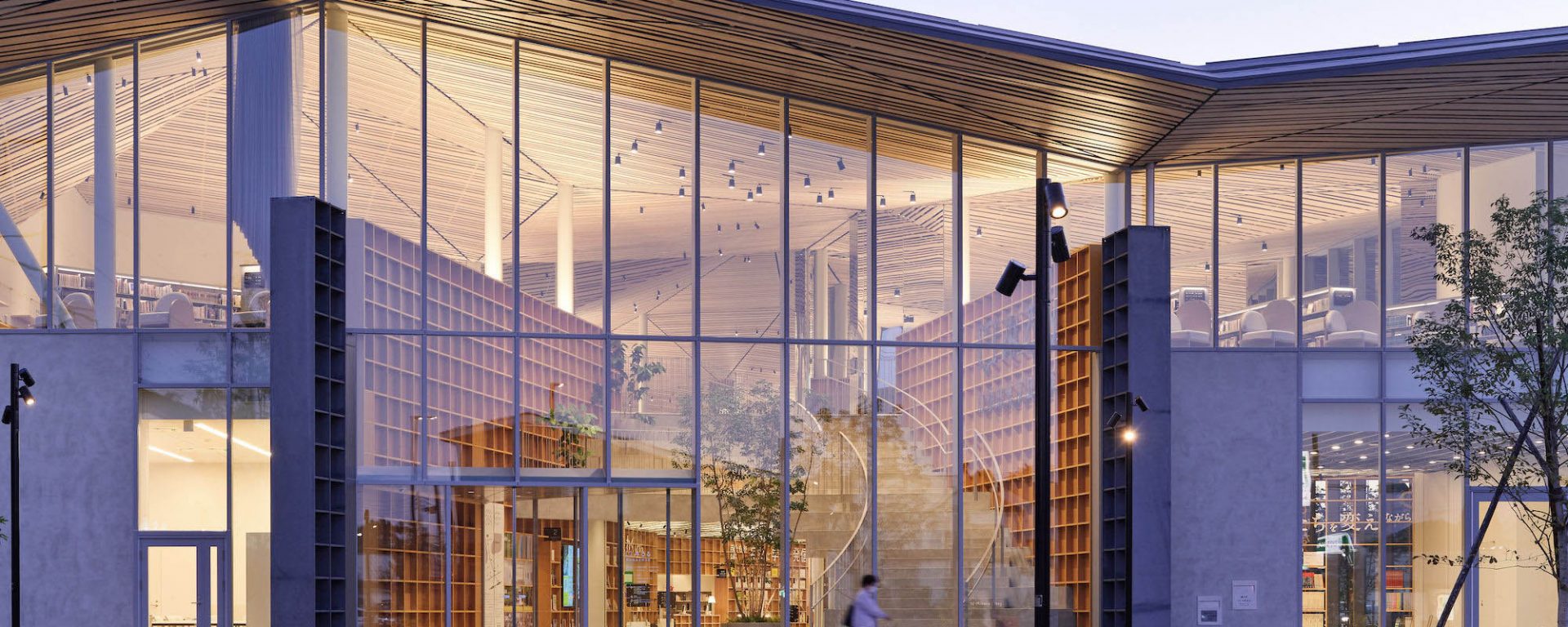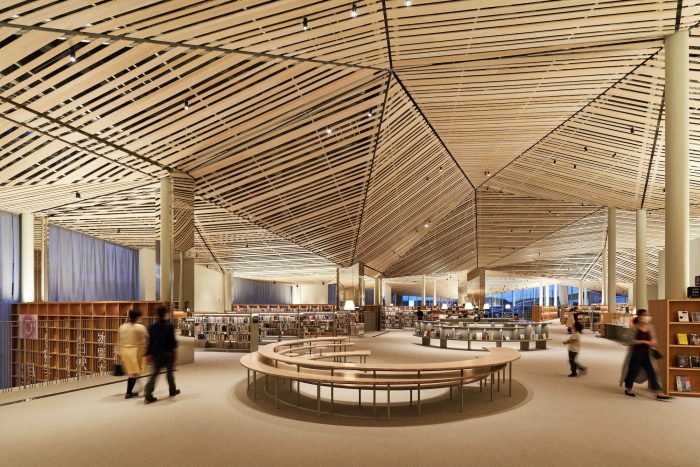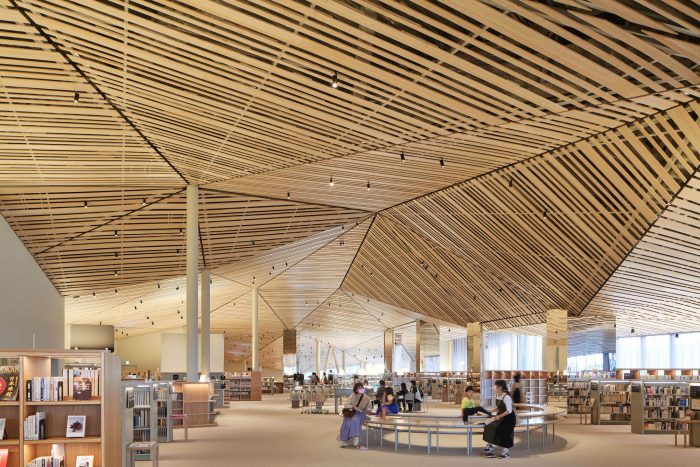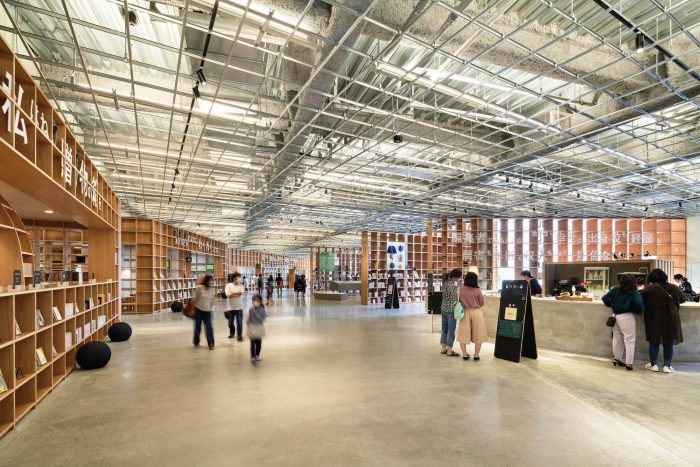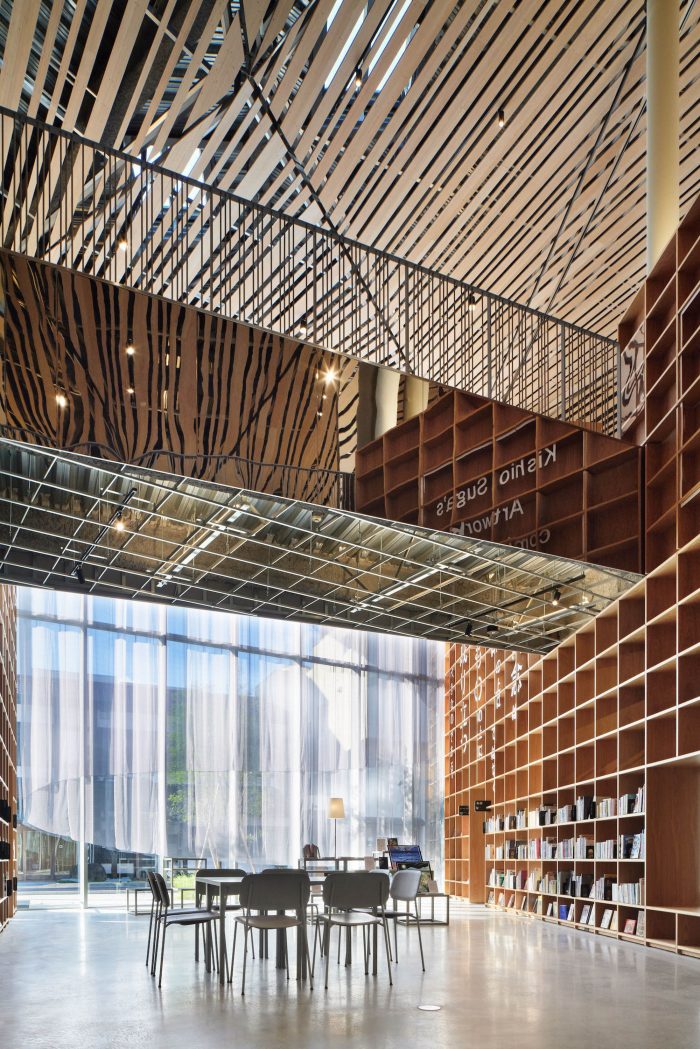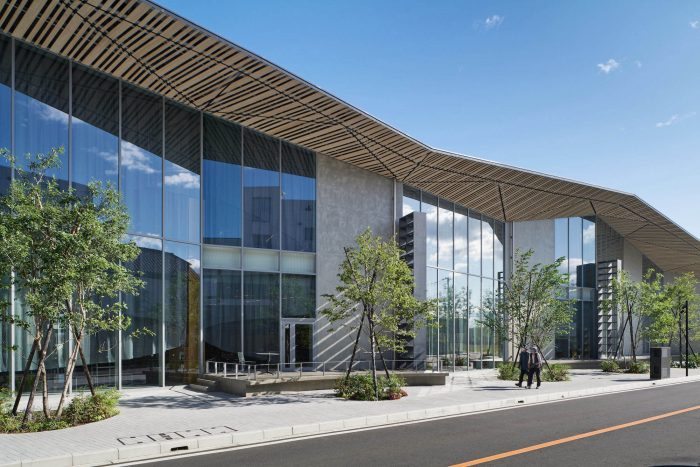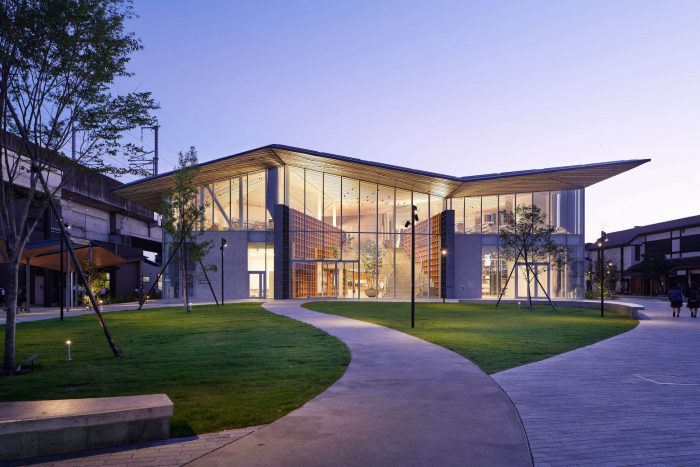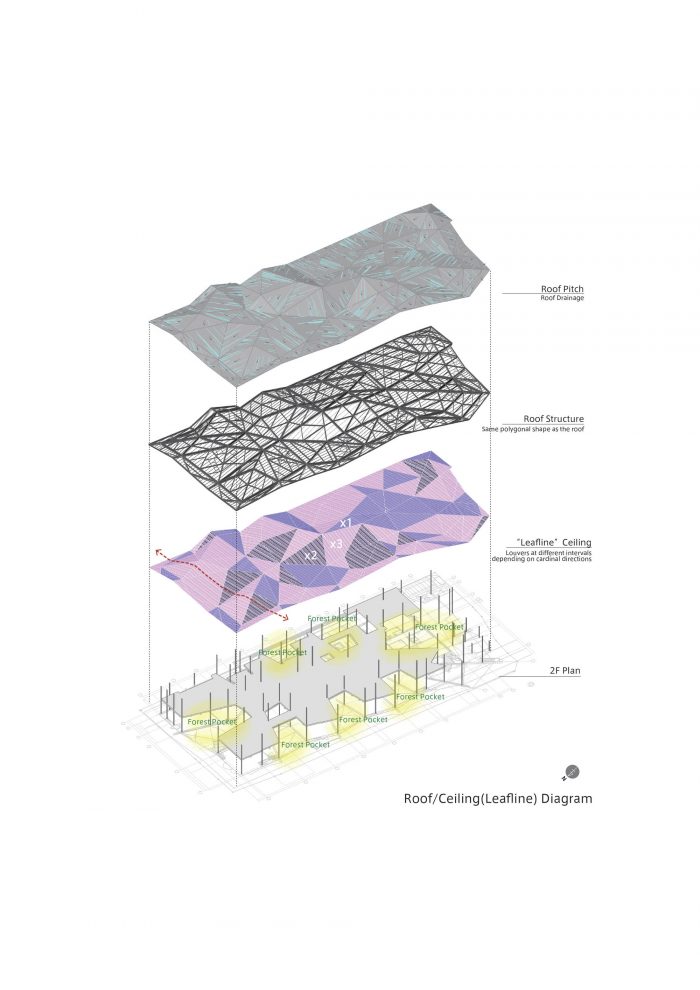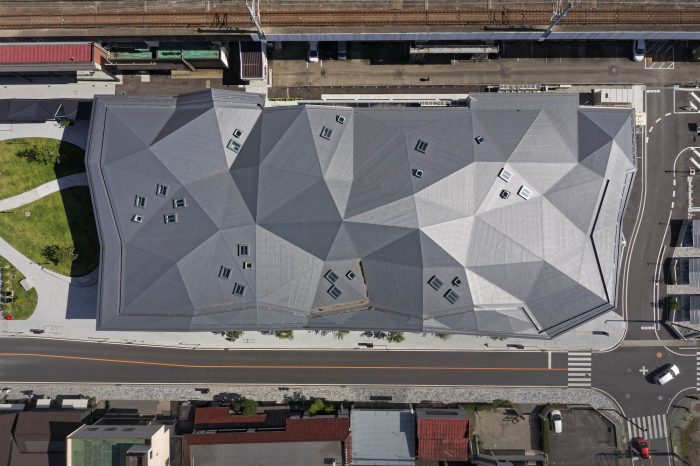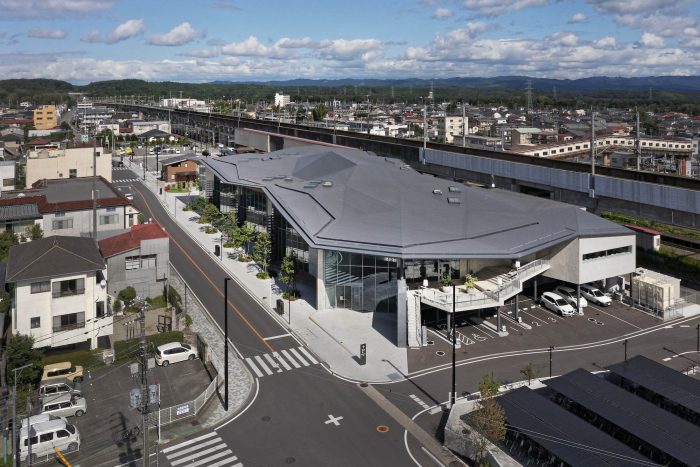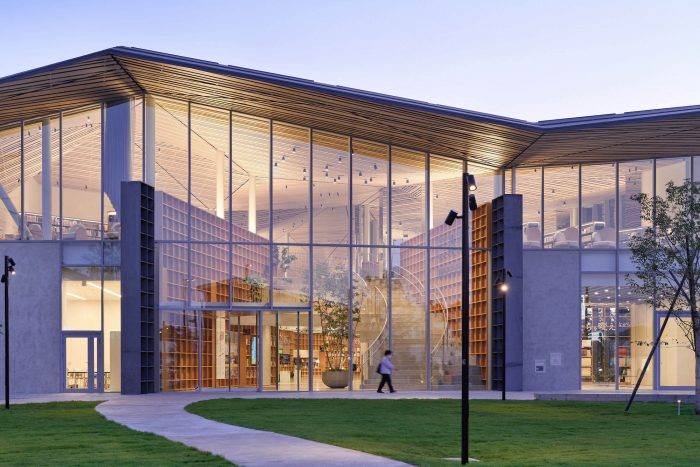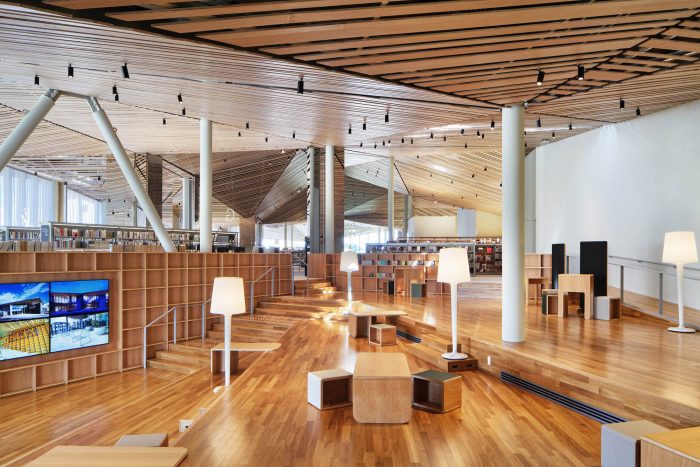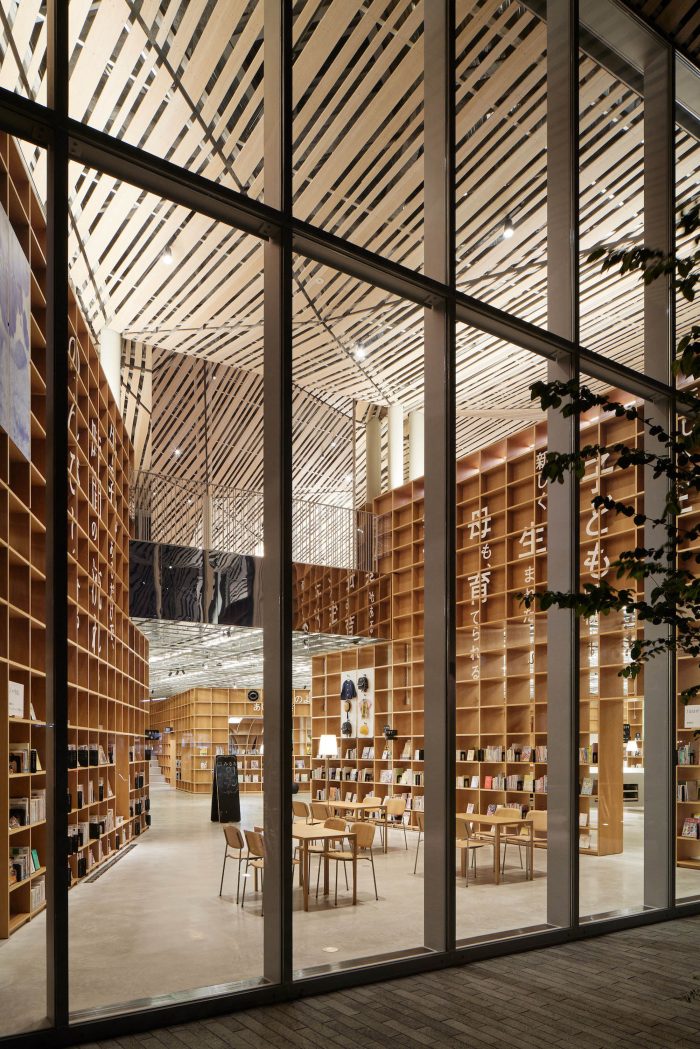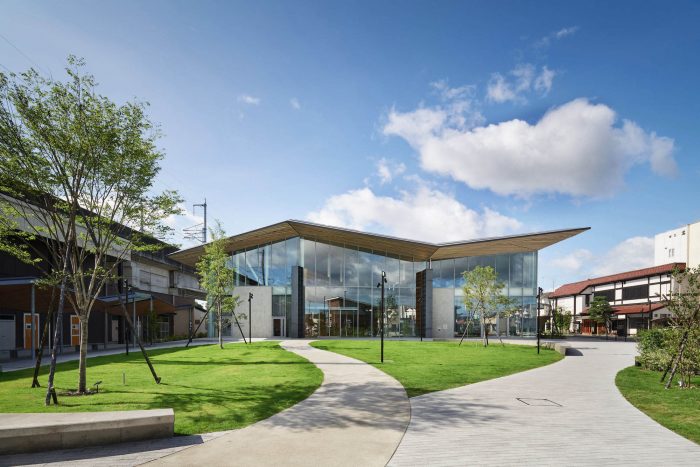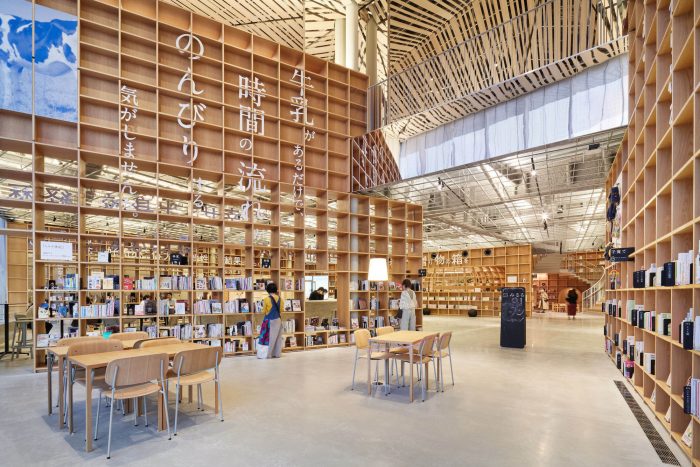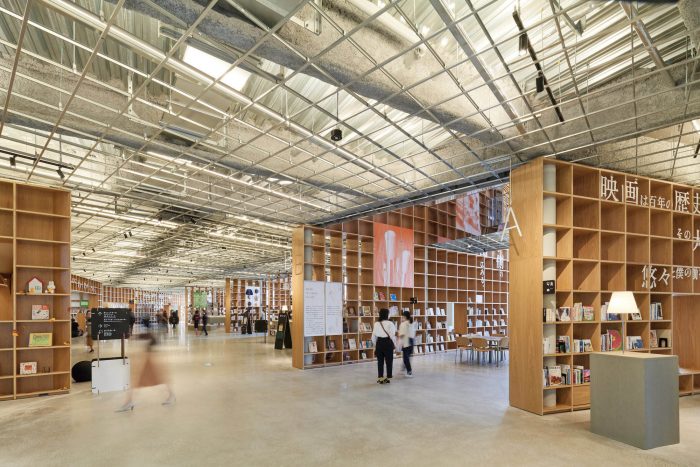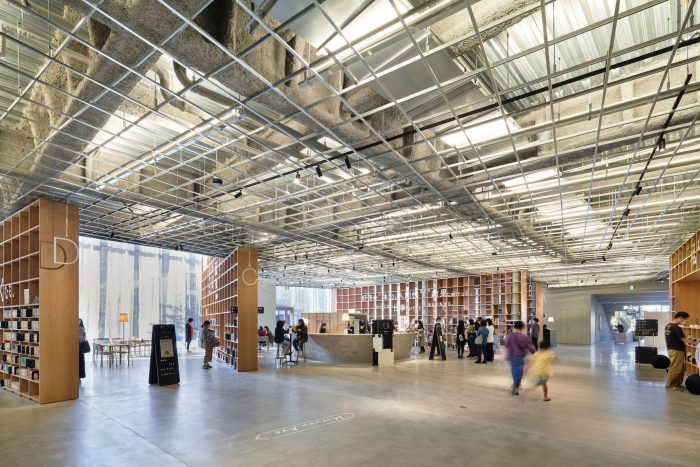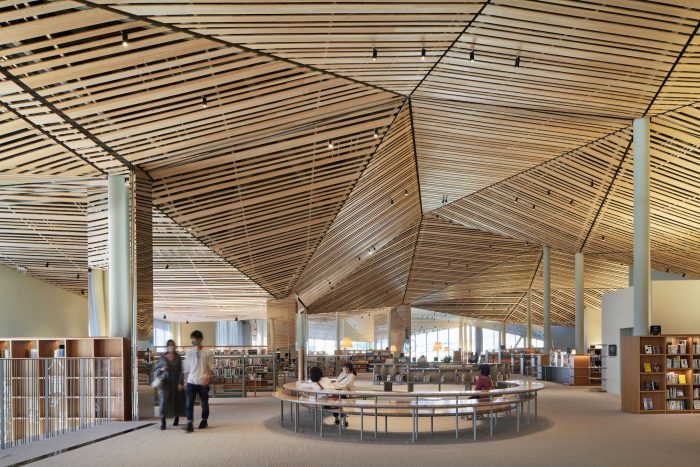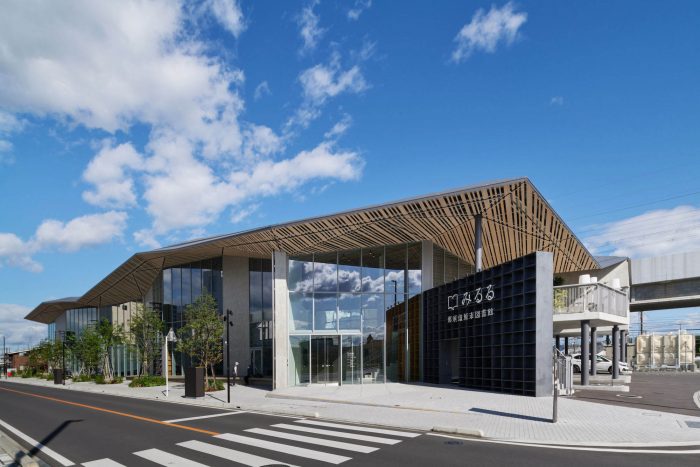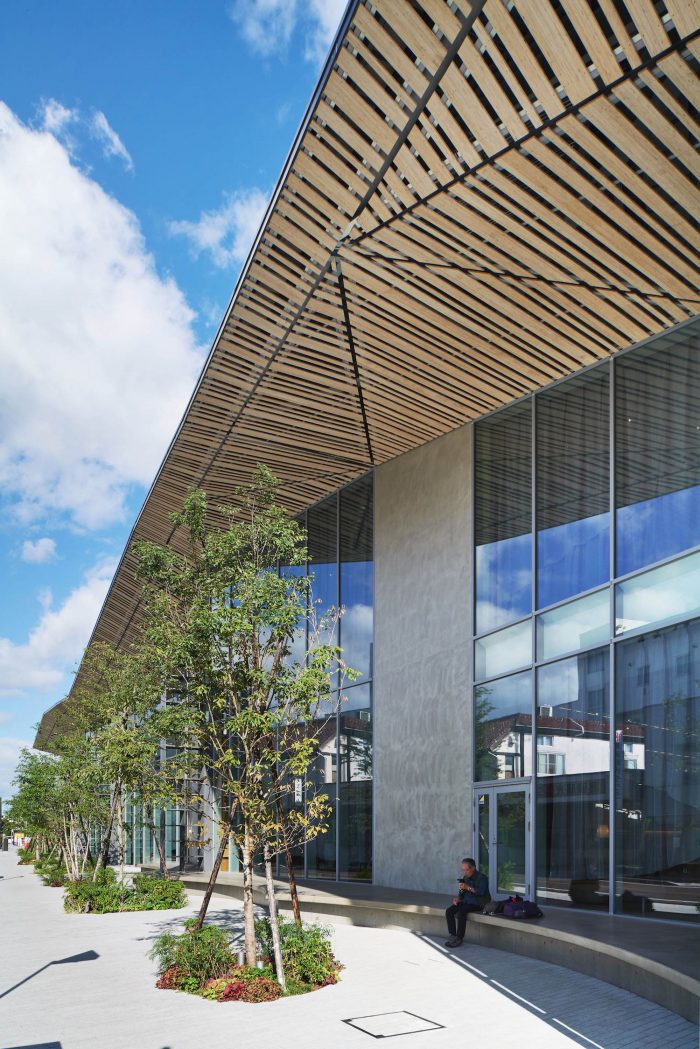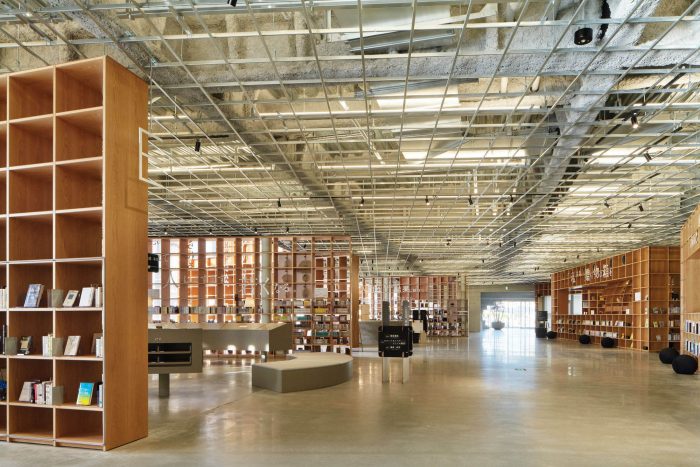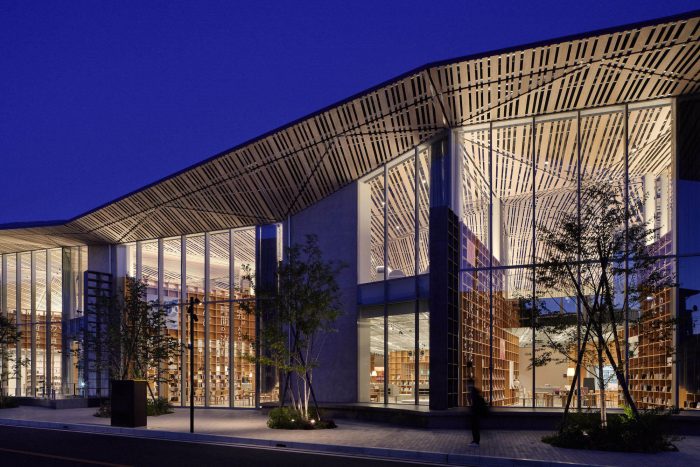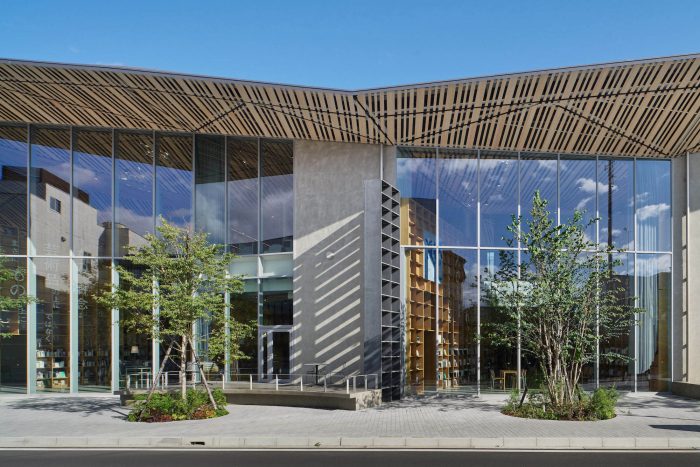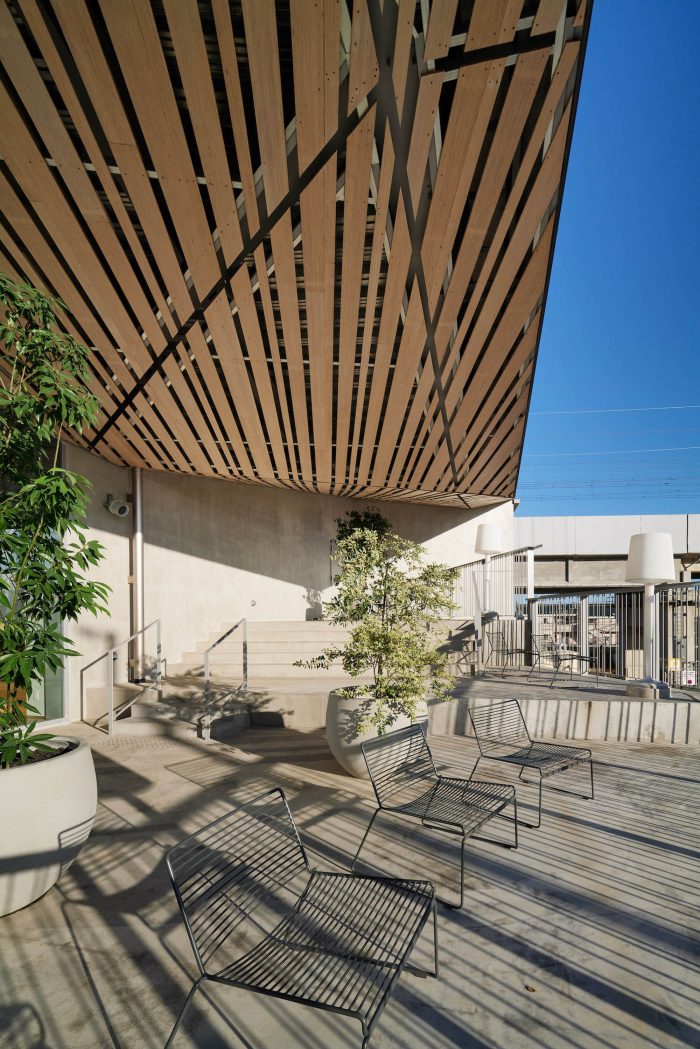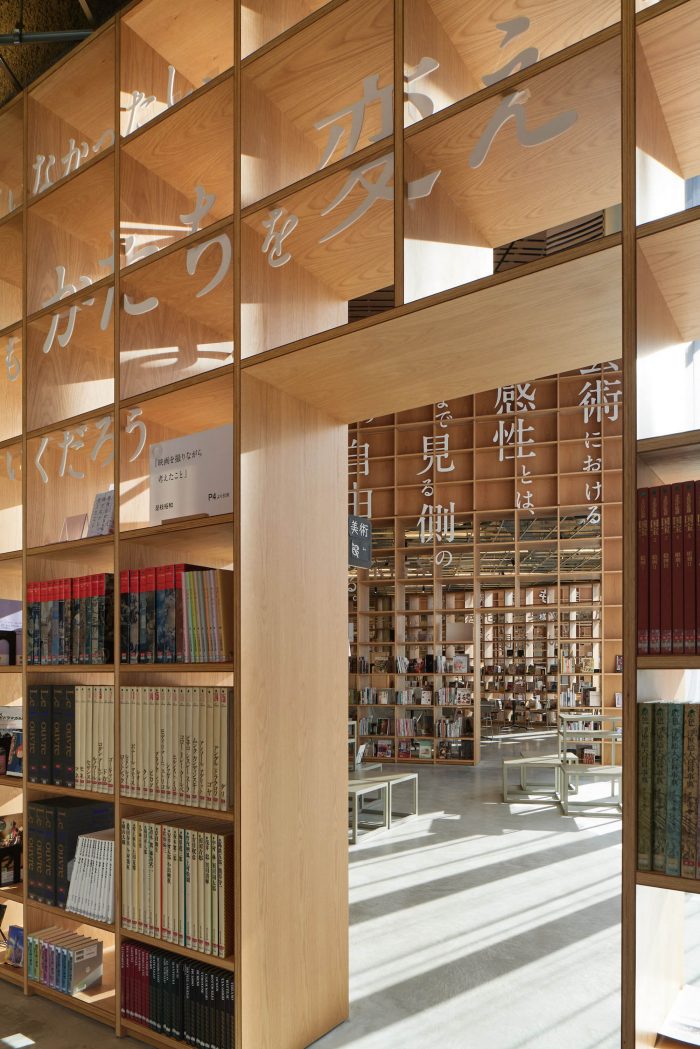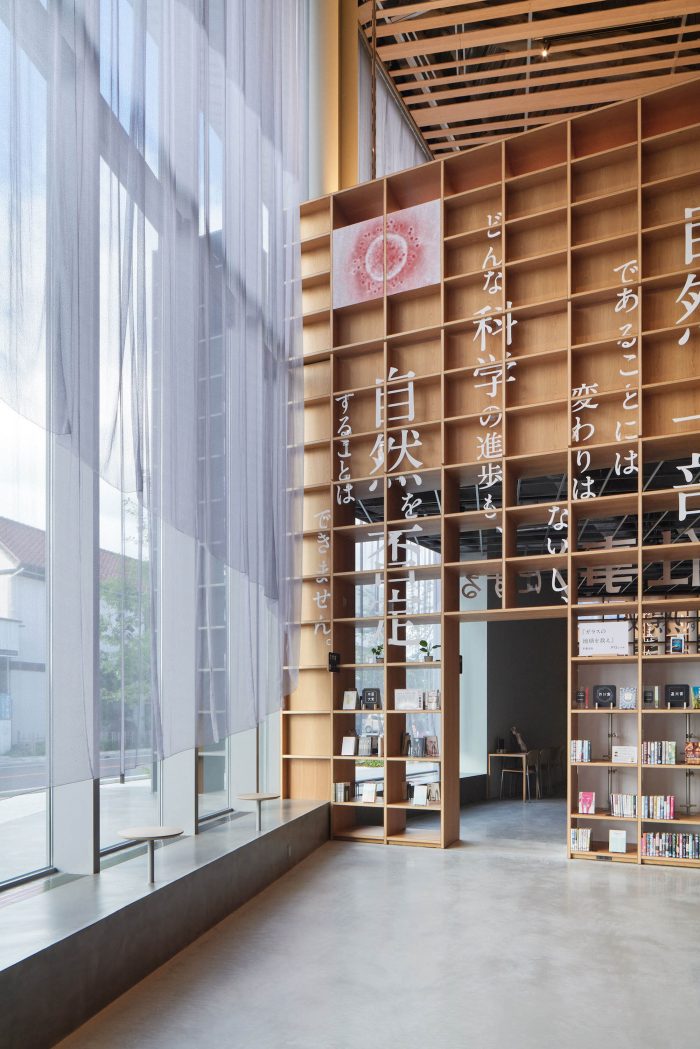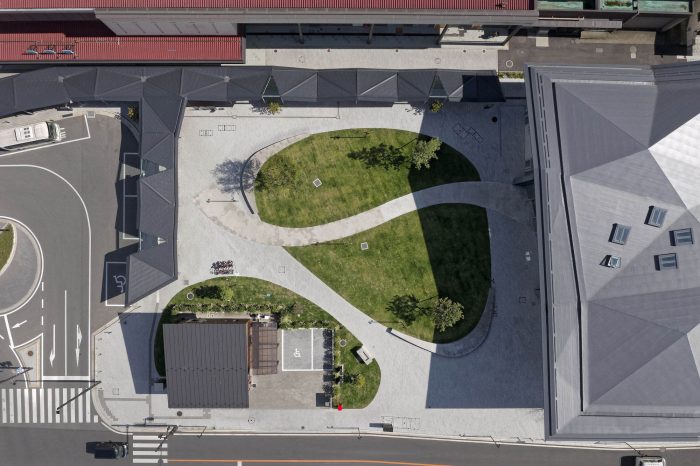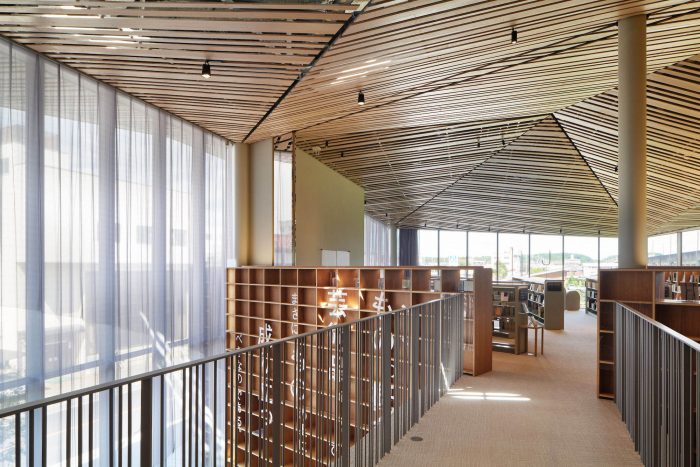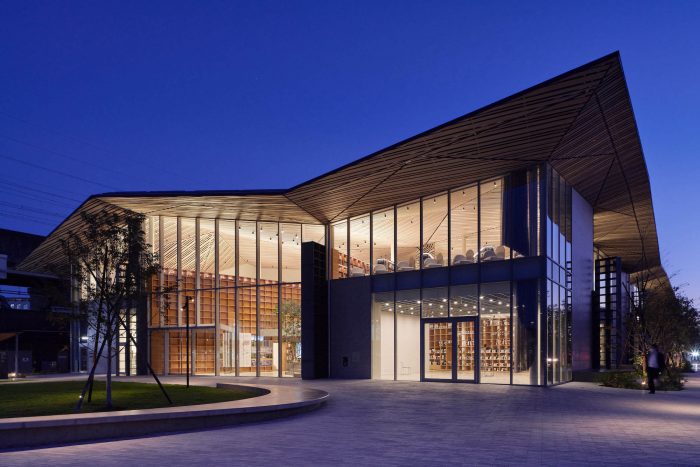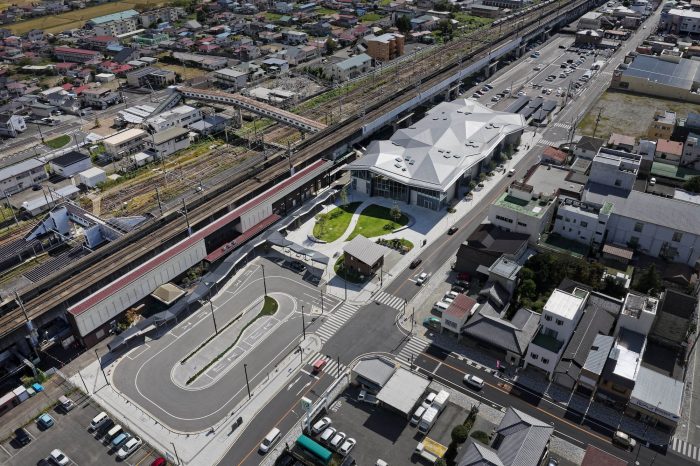这个图书馆和社区中心位于东京以北约150公里的那须石原市。该委托是在2016年的竞争中获得的。森林是这个城市身份的重要组成部分,它激发了设计的灵感。当我们踏入森林时,我们会感觉到季节、天气、植物和动物的微妙而持续的变化,以多种情感上的强大方式吸收这些转变。
This library and community center is located in the city of Nasushiobara, about 150 km north of Tokyo. The commission was awarded in a 2016 competition. Forests, an important part of the city’s identity, inspired the design. When we step into a forest, we sense the subtle yet constant changes in season, weather, and plant and animal life, absorbing these transformations in multiple emotionally powerful ways.
同样,当游客自由地走过图书馆时,他们会体验到一层层微妙的变化在柔和的边界上展开,从箴言和其他陈列在建筑不同位置的展品到正在发生的活动和其他人类造成的变化。通过对多种感官的刺激,该设计旨在引发新的认识和学习。一楼是一个活泼的、可进入的空间,充满了许多交错的微妙之处,而二楼的书库则为迷失在阅读或研究中提供了一个舒适的空间。该建筑的三个关键特征–“森林口袋”、辐射状书架和 “叶线”–描述如下。
Similarly, as visitors walk freely through the library, they experience layers of subtle changes unfolding across softly defined borders, from the aphorisms and other exhibits displayed at various locations in the building to the activities and other human-caused transformations taking place. Through the stimulation of multiple senses, the design is intended to spark new realizations and learning. The first floor is a lively, accessible space filled with many intersecting subtleties, while the stacks on the second floor provide a comfortable space for getting lost in reading or research. Three key features of the building—”forest pockets,” radiating bookshelves, and the “leafline”—are described below.
1. 森林口袋
森林口袋 “是一个中庭,类似于森林中的小空地,在那里天空突然变得清晰可见,光线倾泻而下。它们没有明确的用途,而是可用于社区活动、展览和其他用途。声音和视线向上和向外逸出,使建筑中其他部分的人能够感受到这些空间的活动。
1. Forest Pockets
The “forest pockets” are atria resembling small clearings in the woods where the sky suddenly becomes visible and light pours in. They have no clearly defined purpose but instead are available for community events, exhibits, and other uses. Sounds and sights escape upwards and outwards, allowing people in other parts of the building to sense the activity in these spaces.
2. 辐射式书架
辐射式书架构成了整个建筑的框架。在一楼,视线穿过格子状的隔板,轻轻地将空间隔开,就像人们在森林中的树木之间寻找一样,创造出一个相互联系、不断变化的分层活动的全景图。在二楼,辐射状的书架形成了日本图书馆分类系统中使用的饼状图的现实版本,提高了搜索能力,并使流通路线跨越了分类的书堆。
2. Radiating bookshelves
Radiating bookshelves form the framework of the entire building. On the first floor, lines of sight filter through the latticework dividers that gently partition the space as if one were looking between trees in a forest, creating an interconnected, constantly changing panorama of layered activity. On the second floor, the radiating shelves form a real-life version of the pie charts used in the Japanese library classification system, improving searchability and enabling circulation routes that cut across the categorized stacks.
3. 叶线
叶线 “是一个覆盖整个室内的百叶天花板,以森林树冠的下缘为模型。多面体形式的高度变化创造了许多松散的、大小不一的空间。斑驳的光线通过百叶窗倾泻到第一层,创造了一个不同的光环境。其结果是一个相互联系的、像森林一样的空间,轻轻地将参观者包裹起来,将周围的城市景观以及聚集在图书馆学习和参加活动的人们的日常活动变成各种不断变化的场景。
3. Leafline
The “leafline” is a louvered ceiling covering the entire interior, modeled on the lower edge of a forest crown. The height variations in the polyhedral form create a number of loosely divided spaces of varying size. Dappled light pours through the louvers to the first floor, creating a varied light environment. The result is an interconnected, forest-like space that gently enwraps visitors, turning the surrounding cityscape as well as the everyday activity of the people who gather in the library to learn and participate in events into a variety of ever-changing scenes.
今天,人们不再期望公共图书馆只作为人们聚会的 “第三场所”,而是要激发重要的学习和互动,作为社会资本在更广泛的社区中激荡,为整个城市的发展作出贡献。个人在这个 “文字森林 “中获得的意识和知识作为一种强大的资源回到他们的社区,能够引发重大的变化,并在更广泛的社区激发持久的意识。这些都是那须盐原市图书馆所体现的理想。
Today, public libraries are no longer expected to serve only as a “third place” where people can gather, but also to spark vital learning and interaction that ripples through the wider community as social capital, contributing to the development of the city as a whole. The awareness and knowledge that individuals gain in this “forest of words” return to their neighborhoods as a powerful resource capable of setting off significant change and inspiring lasting awareness in the broader community. Those are the ideals that Nasushiobara City Library embodies.
Architects: Mari Ito, UAo
Area: 4967 m²
Year: 2020
Photographs: Daici Ano
Structural Engineering: Kanebako Structural Engineers
Construction: Ishikawa, Ikoma, Ban Construction Joint Venture
Architecture:Mari Ito, UAo
City:Nasushiobara
Country:Japan

